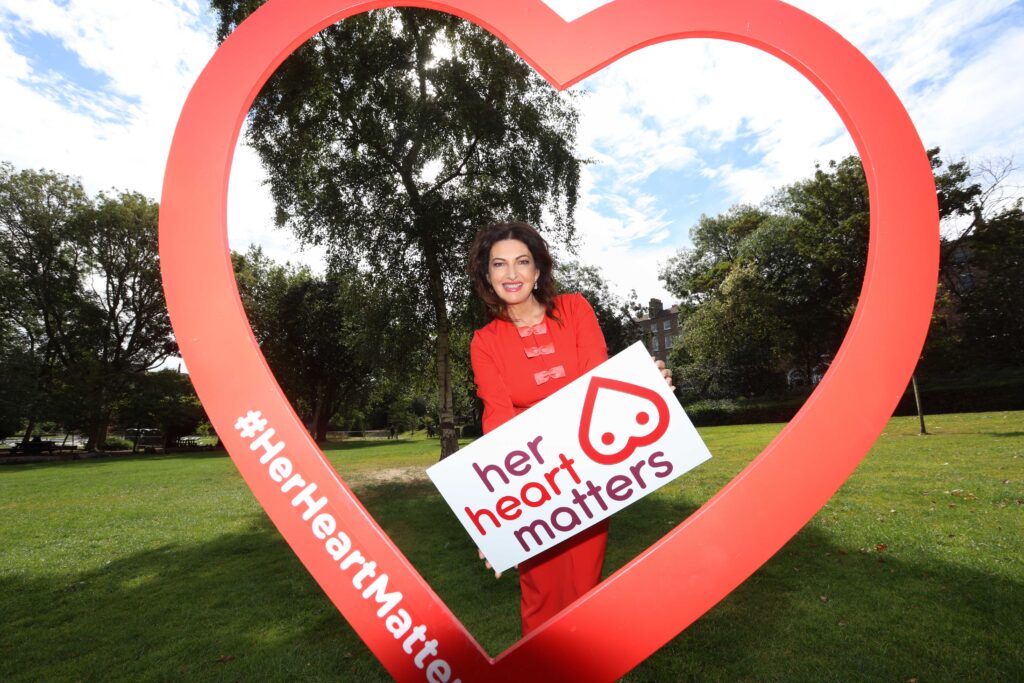Broadcaster Maura Derrane has urged women in Wexford to start the conversation about their heart health.
The RTÉ Today host was speaking as new research revealed only half of women say they recognise the symptoms of heart disease and stroke, while 28% have never had a heart health check.
The Ipsos survey also shows 70% of the public believe females are more likely to contract breast cancer than both heart disease and stroke – despite statistics showing they are six times more likely to die from the latter.
It was commissioned by the Irish Heart Foundation for its ‘Her Heart Matters’ campaign, running throughout September.
The campaign is being supported by Ms Derrane, who said: “One in four women dies from heart disease and stroke, the same as men. But women often neglect their own heart health.
“They are caught up taking care of others, their children and their partners.
“I want to get the message to women in Wexford that they need to listen to their bodies.
“Know the symptoms, which are often different from men’s. If you are not feeling right, don’t ignore it. Go to your doctor and talk about your heart health.”
Dr Angie Brown, Consultant Cardiologist and Medical Director with the Irish Heart Foundation, said that the perception of women’s heart health is quite different to the reality that one in four women dies from heart disease and stroke.
“Women are six times more likely to die from heart disease and stroke than they are from breast cancer so a significant gap in awareness of the symptoms has opened up.”
The research, conducted among 1,056 respondents, shows that just 50% of women, when asked, said they recognised the symptoms of heart disease and stroke, 23% did not and 27% neither agreed nor disagreed.
The Ipsos poll also showed that 41% of women have spoken to a healthcare professional about their heart health within the last year – but 28% have never done so.
“We are encouraging all women, but especially those in their mid-50s and beyond, to have their heart health checked, particularly if they experience chest or back pain, difficulty breathing, dizziness or extreme fatigue – please don’t put it on the long finger,” said Dr Brown.
“Society as a whole needs to confront this embedded myth that heart disease is a male disease; it is still not seen as a disease that affects women to the degree that it does.
“Women need to seek help earlier if they have any suspicion something might be wrong, advocate for themselves, recognise the signs and potentially save their own lives.”
The campaign is supported by the Department of Health and the HSE.
Minister for Health, Stephen Donnelly said: “I commend the Irish Heart Foundation for its important work in highlighting the different risks and symptoms of heart disease and stroke experienced by women.”
Sarah O’Brien, HSE, Healthy Eating & Active Living Programme, Health & Wellbeing, said regular physical activity, quitting smoking, eating healthier and limiting alcohol use are among the crucial steps in helping to prevent up to 80% of premature cardiovascular disease and stroke cases.”
*Her Heart Matters 2024: What Every Woman Needs to Know is a free webinar on October 1 (12.30pm), bringing together a panel of experts for an open conversation on how to prevent and deal with heart disease and stroke. Chaired by Maura Derrane, the panel will share practical information to help women at all stages of life. The webinar will encourage you to talk, share and empower others to look after their hearts. Register on Eventbrite and find out more at irishheart.ie.

